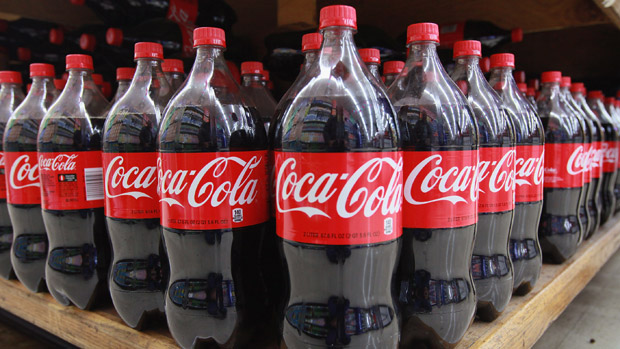Sugary drinks linked to ageing cells in new study
Scientists believe fizzy drinks may be the 'invisible culprit' of age-related diseases

A free daily email with the biggest news stories of the day – and the best features from TheWeek.com
You are now subscribed
Your newsletter sign-up was successful
A link between the consumption of sugary drinks and the ageing of cells has been discovered in a new study by researchers at the University of California.
The study focused on telomeres, the protective caps on DNA which act as "a kind of genetic ticking clock", according to The Guardian's Azeen Ghorayshi.
It found that people who regularly consume drinks with high amounts of sugar had significantly shorter telomeres than those who did not.
The Week
Escape your echo chamber. Get the facts behind the news, plus analysis from multiple perspectives.

Sign up for The Week's Free Newsletters
From our morning news briefing to a weekly Good News Newsletter, get the best of The Week delivered directly to your inbox.
From our morning news briefing to a weekly Good News Newsletter, get the best of The Week delivered directly to your inbox.
Shorter telomeres are associated with a shorter life, geneticists at the University of Utah discovered in an earlier study. They are also associated with chronic age-related diseases such as heart disease and some forms of cancer.
The consumption of roughly two cans of sugary drinks a day has been linked to 4.6 years of biological ageing, leading Professor Elissa Epel, one of the study's authors, to suggest that fizzy drinks may be "one of the invisible culprits" of such diseases.
"Regular consumption of sugar-sweetened sodas might influence disease development, not only by straining the body's metabolic control of sugars but also through accelerated cellular ageing of tissues," said Epel.
Drinking sugary beverages is already known to be a significant contributor to obesity and other health problems, but this is the first time researchers have made a link with ageing DNA. Professor Epel stressed however, that the results show an association between the two factors and do not prove that the consumption of sugary drinks causes cell ageing.
A free daily email with the biggest news stories of the day – and the best features from TheWeek.com
David Jacobs, a professor of public health and epidemiology at the University of Minnesota, said the while the results were "interesting", a longer-term study would be needed to improve the accuracy of the findings.
-
 Why are election experts taking Trump’s midterm threats seriously?
Why are election experts taking Trump’s midterm threats seriously?IN THE SPOTLIGHT As the president muses about polling place deployments and a centralized electoral system aimed at one-party control, lawmakers are taking this administration at its word
-
 ‘Restaurateurs have become millionaires’
‘Restaurateurs have become millionaires’Instant Opinion Opinion, comment and editorials of the day
-
 Earth is rapidly approaching a ‘hothouse’ trajectory of warming
Earth is rapidly approaching a ‘hothouse’ trajectory of warmingThe explainer It may become impossible to fix
-
 Home Office worker accused of spiking mistress’s drink with abortion drug
Home Office worker accused of spiking mistress’s drink with abortion drugSpeed Read Darren Burke had failed to convince his girlfriend to terminate pregnancy
-
 In hock to Moscow: exploring Germany’s woeful energy policy
In hock to Moscow: exploring Germany’s woeful energy policySpeed Read Don’t expect Berlin to wean itself off Russian gas any time soon
-
 Were Covid restrictions dropped too soon?
Were Covid restrictions dropped too soon?Speed Read ‘Living with Covid’ is already proving problematic – just look at the travel chaos this week
-
 Inclusive Britain: a new strategy for tackling racism in the UK
Inclusive Britain: a new strategy for tackling racism in the UKSpeed Read Government has revealed action plan setting out 74 steps that ministers will take
-
 Sandy Hook families vs. Remington: a small victory over the gunmakers
Sandy Hook families vs. Remington: a small victory over the gunmakersSpeed Read Last week the families settled a lawsuit for $73m against the manufacturer
-
 Farmers vs. walkers: the battle over ‘Britain’s green and pleasant land’
Farmers vs. walkers: the battle over ‘Britain’s green and pleasant land’Speed Read Updated Countryside Code tells farmers: ‘be nice, say hello, share the space’
-
 Motherhood: why are we putting it off?
Motherhood: why are we putting it off?Speed Read Stats show around 50% of women in England and Wales now don’t have children by 30
-
 Anti-Semitism in America: a case of double standards?
Anti-Semitism in America: a case of double standards?Speed Read Officials were strikingly reluctant to link Texas synagogue attack to anti-Semitism